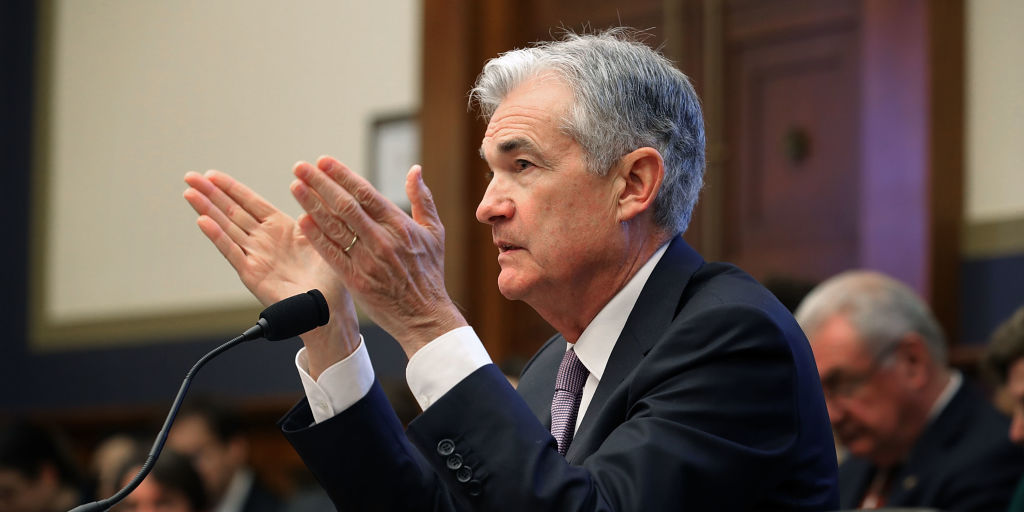- Stocks finished mixed on Wednesday after the Federal Reserve delivered a highly anticipated cut to its benchmark interest rate.
- US indexes sank further into negative territory following indications the central bank wouldn’t move into a prolonged period of easing.
- Fed Chair Jerome Powell erased those losses during his press conference by saying the central bank will cut as needed to fend off an economic contraction.
- US housing starts climbed to in August to the highest level since July 2007 amid a jump in projects for apartments and single-family homes.
- Visit the Markets Insider homepage for more stories.
Stocks finished mix on Wednesday as the Federal Reserve remained divided over the future path of interest rates. The central bank lowered borrowing costs for the second time this year at its September meeting.
The Fed delivered a widely expected 25-basis-point cut – its second reduction after lowering rates for the first time in a decade in July. The Federal Open Market Committee indicated the move wasn’t to be interpreted as the start of a prolonged easing cycle said it “will act as appropriate to sustain the expansion.”
The rate cut was still a welcome sign for investor’s that were growing increasingly concerned as to how central banks around the world would respond to mounting signs of slowing growth.
The move also comes after the Fed injected a total of $128 billion into financial markets in an effort to keep interest rates from moving higher.
The New York Federal Reserve announced on Wednesday that it would pump $75 billion into the market through another overnight repurchase agreement, or repo, in an attempt to keep the federal funds rate within target range. The injection follows a $53 billion repo on Tuesday.
Here's a look at the major indexes as of the 4 p.m. close on Wednesday:
- The S&P 500 rose 0.03%, to 3,006.73.
- The Dow Jones Industrial Average climbed 0.13%, to 27,147.08.
- The Nasdaq Composite fell 0.11%, to 8,177.39.
US home construction climbed in August to its highest level since July 2007 amid greater demand for apartments and single-family homes. Housing starts are a closely-watched economic indicator, as homes are typically regarded as consumers' largest purchases.
Shares of FedEx fell as much as 14% after the company missed earnings estimates for the fiscal first quarter and slashed its profit forecast for 2020. FedEx CEO Frederick Smith said a "weakening global macro environment driven by increasing trade tensions" negatively impacted the company's results.
Within the S&P 500, these were the largest gainers:
- KLA: 3.5%
- Comerica: 2.2%
- SVB Financial Group: 2.1%
And the largest decliners:
- FedEx: (-12.9%)
- Garrett Motion: (-5.7%)
- Alexion Pharmaceuticals: (-4.5%)
Energy shares fell more than 0.4%, while real estate slid 0.3%. Utilities stocks rose 0.5% and financials gained 0.4%.
